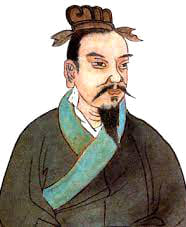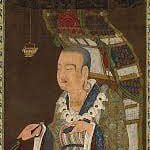Discover the life and legacy of Guan Zhong (725–645 BCE), a transformative statesman and strategist who served as Prime Minister of Qi during the Eastern Zhou dynasty. Learn about his significant reforms in economics, military strategy, and governance that shaped ancient China’s political landscape.
Guan Zhong
Guan Zhong (725–645 BCE) was a Chinese statesman and strategist who served as the Prime Minister of the state of Qi during the Eastern Zhou dynasty. He was born in the state of Qi and lived during a time of great political and social change in ancient China.
Guan Zhong was a highly educated man and was well-versed in the arts of war and politics. He was also a gifted speaker and was known for his wit and wisdom. He first rose to prominence as a minister in the state of Qi and was soon appointed as the Prime Minister by the Duke of Qi.
Guan Zhong is best known for his reforms of the Qi state, which helped to transform it into one of the most powerful states in ancient China. He centralized the administration of the state and created a standing army, which he used to defend Qi against its enemies. He also reformed the taxation system, which helped to increase the wealth and prosperity of the state.
Guan Zhong is often credited with creating the first welfare state in ancient China. He implemented policies that provided food and clothing to the poor, as well as medical care and education to the people of Qi. He also established a system of government that allowed the Duke of Qi to rule with the support of his ministers, rather than relying solely on the advice of his family and friends.
In addition to his reforms in Qi, Guan Zhong is also remembered for his contributions to Chinese philosophy and political thought. He was a disciple of the philosopher Confucius and was one of the earliest advocates of the teachings of Confucianism. He believed in the importance of morality and virtue in leadership, and his political philosophy was based on the idea that a ruler should rule with benevolence and justice.
Despite his many accomplishments, Guan Zhong was not without his critics. Some people felt that his reforms were too harsh and that he had become too powerful. Others resented the fact that he had effectively taken control of the state and reduced the power of the Duke of Qi.
Despite these criticisms, Guan Zhong remains one of the most important figures in ancient Chinese history. His contributions to the development of the state of Qi and his impact on Chinese political thought have had a lasting impact on the country. He is remembered as a wise and just ruler who worked tirelessly to improve the lives of the people of Qi, and his legacy continues to inspire political leaders and thinkers in China to this day. 0 0 0.
Guan Zhong: Comprehensive Biography
Guan Zhong (725–645 BCE) was a prominent Chinese statesman and strategist who played a pivotal role in the political landscape of the Eastern Zhou dynasty. Serving as the Prime Minister of the state of Qi, Guan Zhong is renowned for his significant contributions to political reform, economic development, and military strategy during a time of profound change in ancient China.
Early Life
Guan Zhong was born in the state of Qi, located in what is now Shandong Province, China. Little is known about his early life, but he came from a noble family. His background and education provided him with the knowledge and skills necessary for his future role as a statesman. Guan Zhong was well-versed in the teachings of Confucianism, as well as the military strategies of his time, which influenced his governance approach.
Political Career
Guan Zhong’s political career began when he became an advisor to Duke Huan of Qi, who ascended to the throne in 685 BCE. The state of Qi was then facing internal strife and external threats from rival states, leading to a need for strong leadership and innovative strategies.
In a significant turn of events, Guan Zhong was initially accused of a crime and banished. However, after the intervention of Duke Huan, who recognized his abilities and potential, Guan Zhong was recalled and appointed as Prime Minister. This marked the beginning of a transformative period for the state of Qi.
Reforms and Contributions
As Prime Minister, Guan Zhong implemented a series of ambitious reforms that aimed to strengthen the state of Qi and enhance its position in the region. His policies focused on three main areas: economic development, military strategy, and administrative efficiency.
Economic Development: Guan Zhong recognized the importance of economic prosperity for the stability and strength of the state. He promoted agricultural production and introduced measures to improve irrigation and farming techniques. His policies encouraged trade and commerce, leading to increased wealth for the state and its citizens.
Military Strategy: Under Guan Zhong’s leadership, Qi developed a strong military presence. He emphasized the importance of strategy over brute force and advocated for the use of skilled generals and well-trained troops. Guan Zhong’s military reforms enabled Qi to defend against external threats effectively and to expand its influence in neighboring states.
Administrative Efficiency: Guan Zhong streamlined the bureaucratic structure of Qi, reducing corruption and improving governance. He emphasized meritocracy, promoting officials based on their abilities rather than their noble birth. This approach attracted talented individuals to serve in the government, enhancing its effectiveness.
Legacy and Influence
His tenure as Prime Minister lasted for several decades, during which he successfully transformed the state of Qi into one of the most powerful states during the Eastern Zhou dynasty. His policies laid the groundwork for future developments in Chinese governance and statecraft.
His legacy is also reflected in the historical texts and philosophical writings that followed him. He is often cited as an exemplar of wise governance and effective leadership. His thoughts and strategies influenced subsequent statesmen and strategists in Chinese history, and he is remembered as a model of political acumen and ethical governance.
Conclusion
His life and career exemplify the qualities of an effective statesman during a turbulent period in Chinese history. Through his innovative reforms in the areas of economics, military, and administration, he significantly strengthened the state of Qi, contributing to its prominence in the Eastern Zhou dynasty. His legacy endures as a testament to the principles of effective governance, strategic thinking, and the importance of adaptability in leadership. Guan Zhong remains a revered figure in Chinese history, symbolizing the ideals of a capable statesman dedicated to the welfare of his state and its people. 0 0 0
Brief Data on Guan Zhong
- Full Name: Guan Zhong (管仲)
- Born: 725 BCE, State of Qi, Eastern Zhou dynasty, China
- Died: 645 BCE
- Era: Eastern Zhou dynasty
- Occupation: Statesman, Strategist
- Key Contributions: Served as Prime Minister of Qi, implemented significant economic and military reforms, and improved administrative efficiency.
- Legacy: Recognized as a model of effective governance and strategic leadership in Chinese history.
FAQs About Guan Zhong
Q1: What is Guan Zhong best known for?
A1: Guan Zhong is best known for his role as Prime Minister of Qi, where he implemented transformative reforms in economics, military strategy, and governance, strengthening the state during the Eastern Zhou dynasty.
Q2: What reforms did Guan Zhong introduce in Qi?
A2: Guan Zhong introduced reforms that promoted agricultural production, improved irrigation and farming techniques, developed military strategies emphasizing skilled leadership, and streamlined bureaucratic processes to reduce corruption.
Q3: How did Guan Zhong impact military strategy in Qi?
A3: He emphasized the importance of strategy over brute force, advocating for skilled generals and well-trained troops, which allowed Qi to effectively defend against threats and expand its influence in the region.
Q4: What legacy did Guan Zhong leave in Chinese history?
A4: His legacy includes his reputation as an exemplary statesman and strategist, whose principles of governance and leadership influenced future generations of Chinese leaders and are studied in historical texts.
Q5: Is Guan Zhong’s influence seen in contemporary governance?
A5: Yes, His ideas on effective governance, meritocracy, and strategic thinking continue to resonate in discussions about political leadership and administration, highlighting the importance of adaptability and ethical leadership. 0 0 0
N. B. This article originally belongs to the book, ‘Brief Biographies of Ancient Thinkers and Writers‘ by Menonim Menonimus.
Books of Biography by M. Menonimus:
- The World Writers-Brief Biographies
- Introduction to World Writers
- Introduction to World Personalities
- Love of Reputed Persons ..
Additional Searches:











